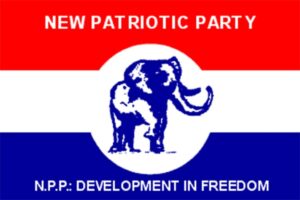The New Patriotic Party’s (NPP) recent decision to impose a ₵4 million “development fee” on presidential aspirants has sparked widespread criticism and raised questions about the party’s commitment to democratic principles. This fee, coupled with the already hefty nomination and filing fees of ₵100,000 and ₵500,000 respectively, has been described as an “economic filter” designed to predetermine leadership pools and exclude capable but less affluent candidates.
The Unconstitutionality of the Fee
Critics argue that the ₵4 million fee violates Article 55(5) of the 1992 Constitution, which requires political parties to conform to democratic principles and not exclude members on arbitrary or discriminatory grounds. The fee is seen as a wealth-based barrier that disenfranchises competent but less affluent members, concentrating leadership opportunities in the hands of a wealthy elite.
Arbitrary and Capricious Decision
Furthermore, the imposition of the fee is considered arbitrary and capricious, violating Article 296 of the Constitution. The NPP’s National Executive Committee (NEC) has been accused of acting beyond its powers by introducing a separate “development fee” without constitutional backing. The fee is also seen as disproportionate and unnecessary, given the already high nomination and filing fees.
Consequences for Democracy
The NPP’s decision has significant implications for Ghana’s democracy. By imposing such a high fee, the party is effectively limiting participation to only the wealthiest or those with significant financial backing. This undermines the principles of internal party democracy and creates a pipeline to transactional politics, where public office is used to recover campaign investments.
Call for Reform
Professor Stephen Kwaku Asare, also known as Kwaku Azar, has called for a national conversation on political party reforms and campaign financing. He suggests that nomination fees should be capped, development fees scrapped, and alternatives such as refundable deposits or signature thresholds considered. The Electoral Commission has also been urged to play a more active role in ensuring that political parties operate in a manner consistent with democratic values.
T